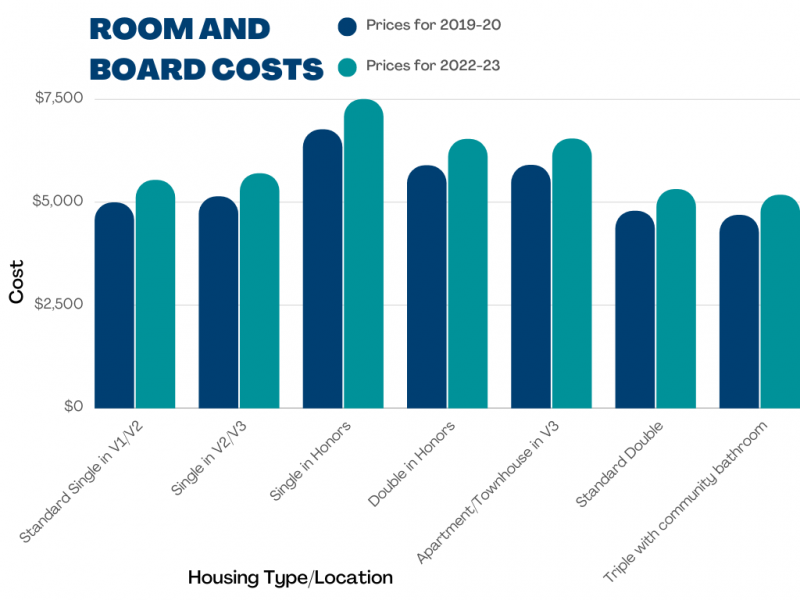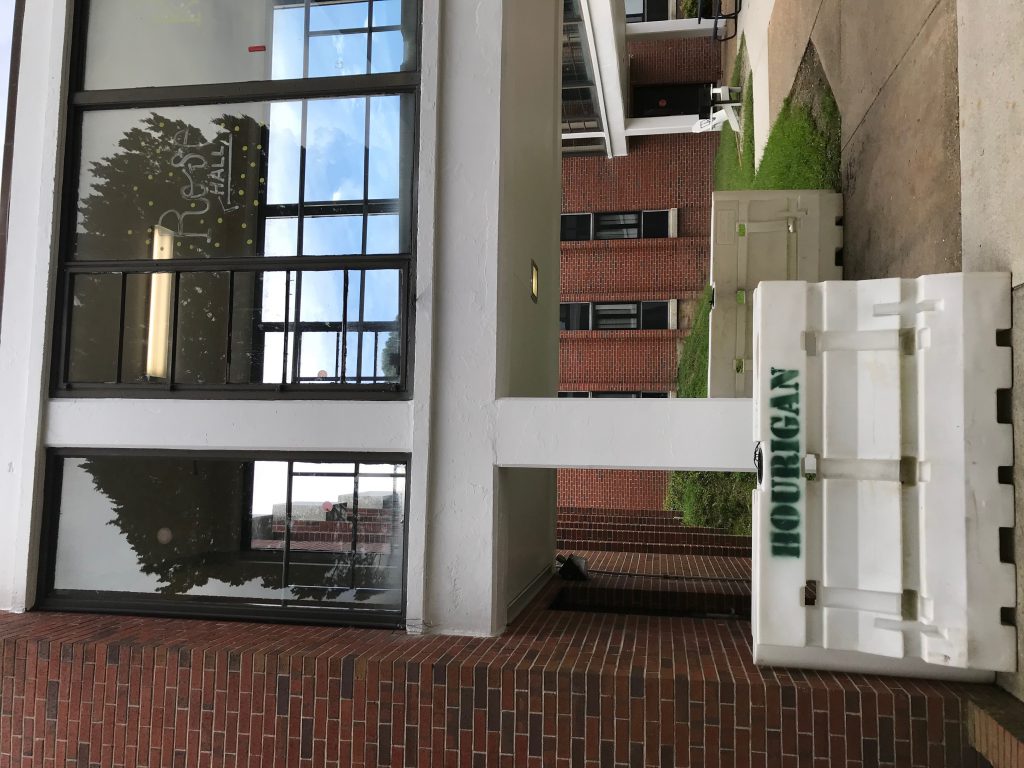Featured Image: Information provided by Assistant Director of Residence Life Elyse Rosen. Rhian Tramontana | Marlin Chronicle
On Feb. 6, President Scott Miller announced in his weekly Nota Bene that tuition will be frozen for the 2023-24 academic year, marking the sixth year the university has frozen tuition.
The tuition freeze was made possible in part through private donations that increased the school’s endowment from $60 million in 2015 to $126 million in 2022.
The John A. Trinder Center for Advancement has worked to help these initiatives to grow the university’s endowment and create a philanthropic campus culture. These initiatives have been encouraged by the administration.
“Cost containment has been a priority of our administration,” President Miller said. “We completed our ‘Transformation Now!’ fundraising campaign on June 30, 2022, and that campaign exceeded its goal by over $81 million.”
With the tuition freeze in the past years, prices have increased in other areas of campus.
“Room and board will increase, but this is not in exchange for the tuition freeze,” Miller said. “We cannot control the rising costs from our many vendors that help us provide quality student housing and services. Therefore, we must increase room and board at a comparable rate to rising costs in these areas.”
Director of Residence Life David Stuebing attributes the rising cost of housing to inflation. “The numbers for next year are not out yet, but typically the increase is comparable to the annual inflation rate,” Stuebing said.
The prices for all housing will increase by a determined percentage based on inflation. “The primary drivers of increases in room and board costs are the non-negotiable costs the university must pay, including utilities like electricity and water, food and produce costs for dining, the cost of paper and cleaning products through housekeeping, and so on,” Stuebing said.
Room and board prices have risen significantly in past years as well, typically following inflation trends. Between the school years of 2019-20 and 2022-23, room and board prices have increased by about 10.87% across campus. While prices differ, the percentage increase is about the same for each village and housing type.
According to the U.S. Bureau of Labor Statistics, the inflation of the buying power of the U.S. dollar from 2019 to 2023 is 19%.
While the rises are necessary, Miller acknowledges that it is not ideal for the students. “Of course inflation is an issue, but we are fully committed to affordability. We know students and their families are feeling the effects of inflation everywhere so we’ve done our very best to control our costs,” Miller said.
According to a VWU news brief from Feb. 8, 98% of the university’s students receive financial assistance. Last year, VWU students received more than $2.7 million from the Virginia Tuition Assistance Grant (VTAG). According to the University of Richmond website, the VTAG amount for each eligible student the 2022-23 academic year was $4,500. The amount is determined by the number of eligible students and the funds allocated by the General Assembly.
In addition, a privately funded Work & Learn program supplements work study programs.
Alec Gordon, a freshman biology major, offsets costs by working on campus. “I’m an ambassador. So I work on campus and then if I become an RA next year that also helps,” Gordon said.
For Gordon, the cost of school was a major factor in his decision to come to VWU. “I was worried my parents would have to pay way too much,” Gordon said.
The news brief also emphasized the importance of value over cost. “Prospective students and their families are also encouraged to think value, not just advertised cost,” the brief said.
By Rhian Tramontana
rjtramontana@vwu.edu

